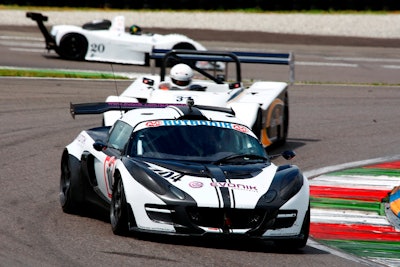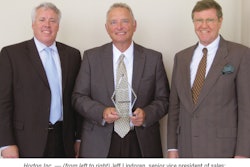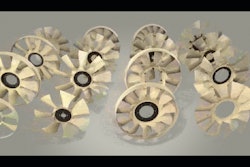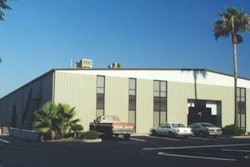
The RED Motorsport team has had an excellent start: In the first of six AvD 100-mile races of the season in Franciacorta, Italy, in mid-May, its Lotus Exige took first place in the GT4 class. The car was ranked 16th overall in a field of 31 participants.
This is equally a success for Evonik's Automotive Industry Team (AIT), which sponsors the Lotus racing car—because the race was also a test run for a new engine oil to which Evonik's Oil Additives Business Line has contributed novel and innovative lubricant components. “In conjunction with our strategic partner Fuchs Europe Schmierstoffe GmbH, a new engine oil has been developed that significantly reduces fuel consumption and CO2 emissions,” says Norbert Westerholt, head of the business line.
VISCOPLEX and VISCOBASE are the lubricant components from Evonik that, as constituents of the innovative high-performance engine oil, contribute to a significant reduction of friction in the engine. This leads to measurable improvement in performance as well as lower fuel consumption. And the new product is as easy on the environment as it is on the purse, because lower fuel consumption equals less CO2 emission.
The automotive industry and its suppliers are always on the lookout for ways to optimise fuel consumption. Even low single-digit percentage improvements represent a considerable achievement. This is all the more important now that the EU has defined upper limits for CO2 emissions of new cars. For Evonik too, resource efficiency has long been an important target. So it was no coincidence that lubricants producer Fuchs turned to Evonik when looking for new components—and found what it wanted.
Thanks to a sophisticated development process, the new 0W-20 engine oil was at the starting line promptly at the opening of the racing season. “Because the technical requirements of the individual components were extremely high, we had partly to redevelop the products before producing them,” says Dr. Thorsten Bartels, head of the test laboratory for Oil Additives at Evonik in Darmstadt. Over the last year, Bartels and his team have optimised the newly developed high-performance lubricant on an engine test-bench and also tested it in racing cars under realistic driving conditions on a number of test tracks until it was finally ready for use in racing.
In the Lotus Exige, Evonik's Automotive Industry Team (AIT) regularly makes use of innovative technologies for automotive construction, in lubricant additives and fuel savings as well as other areas of expertise such as lightweight design and surface technologies. The Lotus model built for this season weighs in at just 780 kilograms. The reduced weight results from the use of various Evonik technologies such as the structurally rigid ROHACELL foam core in the bodywork.
For the AIT, which brings together the Group’s automotive experts, motor sports serve as the test field for series production: “Only those technologies that withstand the rigorous conditions of the race track can be considered basically suitable for serially produced vehicles,” says AIT head Klaus Hedrich. Meanwhile, testing of the newly developed oil on the engine test-bench and roller dynamometer continues at Evonik in Darmstadt. The innovative lubricant is already undergoing long-term tests in a fleet of road vehicles.

















